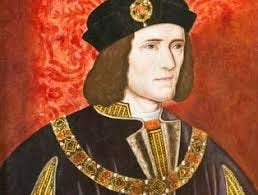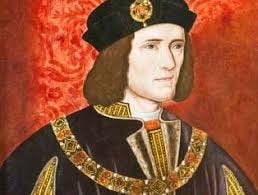Back in 2018, I self-published a novel called ‘Protest at the Tower: Was Richard III Wronged?’ I wrote it as a response or prerequisite after getting some compelling revelations about Richard, so after much deliberation and research, I wanted to acquit him of the usual crimes he’s gone down in history as having committed: The seizure of the English throne, the murder of his two nephews, and judicial murder of key powerful figures. Judicial murder, I may add, was characteristic of the medieval period, which lasted for hundreds of years. I’ve loved history since majoring in it, and grew to be particularly appreciative of the medieval period. Although much of history is interesting, I joined a Facebook group about medieval England. The group is ok as far as it goes, but when someone posts something about Richard, usually to mark an anniversary about him, such as his accession to the throne, the execution of William, Lord Hastings, the date of the Battle of Bosworth, an admixture or a snowstorm of biased commentary come, if not flow - some defend him, some don’t.
Another member who also has his own Facebook page, and is passionate about history, especially the medieval era, just this week, posted something like: ‘Richard’s gone down in history as this…or as that. What are your thoughts…’ This, of course, soon got the ball rolling or set the cat among the pigeons. One member posted something like: ‘Of course he did (murder his nephews), who else could have done it?’ Just because their disappearance occurred on his watch, which ties in with the time, which was violent, and it certainly was, amplified by the ongoing civil war between the houses of York and Lancaster, no less, the political turmoil, also characteristic of the period, which led to Richard taking the throne. And the very fact that the disappearance of the two princes has never been solved (although a high-profile figure in the Richard III movement, Philippa Langley, because she discovered and had his remains unearthed from underneath a car park in 2011, claims to have done it). But I remain unconvinced. Until that happens, the adage ‘innocent until proven guilty’ holds sway.
So, that’s Number One in all the bad stances, making it full of gaping holes.
Here’s Number Two:
If Richard was the ruthless murderer Shakespeare portrayed him as (one member of the medieval England group nonsensically says Shakespeare was right to the last jot and tittle of his play. Shakespeare was a dramatist, and a playwright who fiddled with history for dramatic effect), he wouldn’t have let his other nephew, Edward Earl of Warwick live who, due to blood lineage, had a stronger claim to the throne than he did being the son of one of his older brothers despite being barred from it and was somewhat of a retard. After Richard’s defeat at Bosworth, Henry Tudor, who had little or no claim to the throne at all, thought nothing of having Warwick imprisoned in the Tower and executed. I wonder why he did, and Richard didn’t. I pitched in with this argument - I didn’t get a response other than a like from a member who agreed with me.
Here’s Number Three:
Richard, more often than not, takes the flak for the executions of three of the Woodville clan and then Hastings, purely because they were ‘respected’ members of the hierarchy. It was more likely they were involved in successive treasonous plots to unseat Richard. Plots and intrigue were highly characteristic or common of the period. Likely, there were caches of ammunition found at the scenes of the plottings, although this is rarely covered by successive historians. The Woodvilles were an ambitious lot who wormed their way into the favour of Edward IV. This caused such reactions that Richard Neville, Earl of Warwick, Richard’s uncle - the brother of his mother - who put Edward on the throne, turned rebel and kidnapped Edward, imprisoning him in one of the towers of one of his castles. Neither the Woodvilles nor Hastings could stomach a regime ruled by someone appointed Lord Protector who wouldn’t be granted any favour or anything acquisitive. Hastings was a sycophant who lost a lot of his lands and titles on the death of Edward. When he found he wasn’t going to benefit from Richard and was sidelined, he turned coat, joined the Woodvilles, and the rest is history. He likely discovered Edward’s precontract to another woman, making his marriage to Elizabeth Woodville bigamous and their offspring illegitimate, thus barring the two princes from inheriting the crown, which caused the likelihood of Richard becoming king.
Here’s Number Four:
Three days after the Battle of Bosworth, Henry Tudor, who became Henry VII, had Richard’s most intimate and trusted advisor, William Catesby, executed. I wonder why he did. Tudor likely wanted a lot of information hushed up or silenced, such as the precontract arrangement, which put Richard on the throne and other tidbits of information Catesby knew about, so would be damaging to Tudor.
So, there you have it. Richard was neither all good nor all bad. He was a man of his times, which were certainly violent (he was a trained knight and soldier in tune with his status) and, being a member of the hierarchy, was ruthless. But he was also a benevolent monarch who, during his short time as king, passed several good laws, something which largely gets overlooked.
It’s just a shame history is written by the winners.



